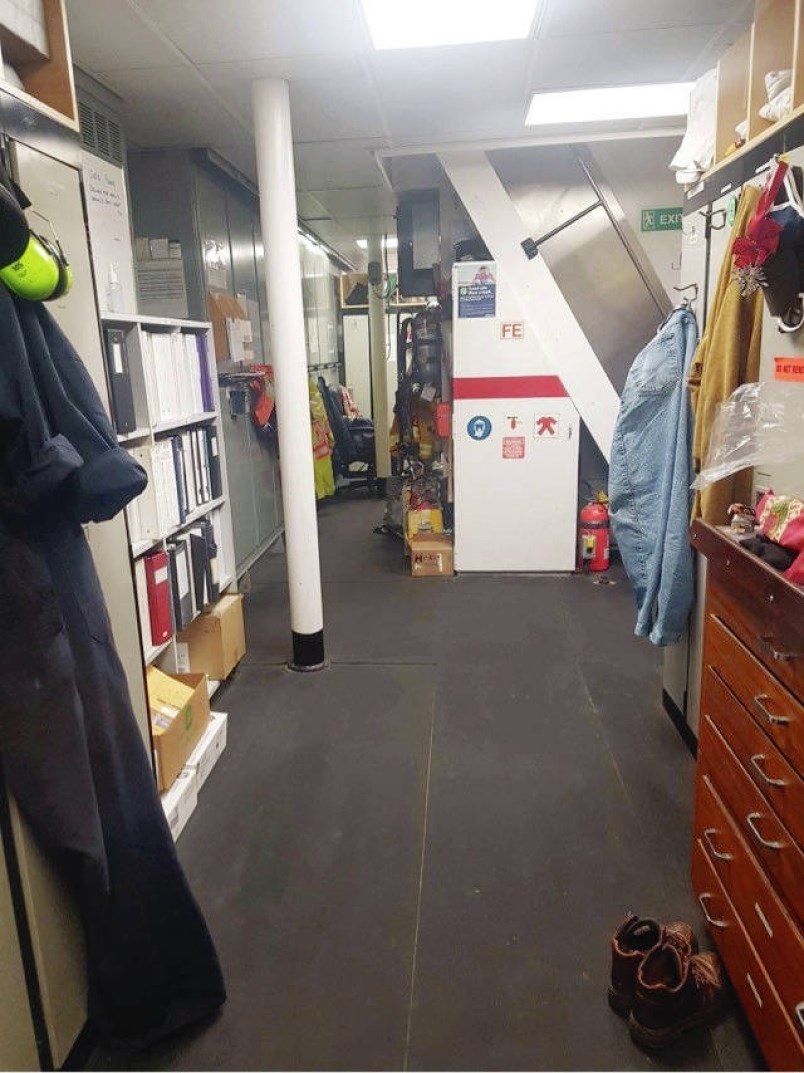All 16 of the female engineers working in the B.C. Ferries fleet have filed a human-rights complaint against their employer, claiming gender-based discrimination.
Among their allegations is the lack of safe and private places to change into their overalls and to use the bathroom aboard vessels, said Adrienne Smith, a lawyer hired by the B.C. Ferry and Marine Workers Union to represent the women.
B.C. Ferries has a crew of more than 500 engineers who maintain, monitor and repair machinery aboard the ferries.
But the women who work in the department are often left humiliated and feeling unsafe, according to the complaint filed with the B.C. Human Rights Tribunal.
“There have been women working in engineering for the last 30 years, and they still don’t have safe and private places to change into their coveralls or use the bathroom,” said Smith. “As a result, many women change in spaces on board vessels which are not designed for changing. Often they are changing in storage areas or machine spaces, and these areas don’t have a door that can be locked or even closed while women engineers are changing.”
Engineers are required to change into overalls after boarding B.C. Ferries vessels, said Smith, so proper changing areas should be provided.
The complaint to the B.C. Human Rights Tribunal says that without proper facilities, women can’t change “without being made to feel like interlopers in men’s changing spaces, and without being interrupted in the spaces where they can change.”
They must also pass through men’s changing spaces to access a toilet or shower, calling out to advise male workers that they intend to enter the space, in order not to embarrass men who may be changing.
The complaint also says that female engineers have insufficient receptacles to dispose of hygiene products, noting: “The lack of facilities draws focus to their status as women, causes them to feel different, unwelcome, humiliated and unsafe in the workplace.”
It alleges a climate of harassment and bullying, with female workers routinely referred to as “girls,” and written correspondence to staff addressed to “gents.”
Although plans for the 2018 retrofit of the three Salish-class and two Spirit-class vessels showed designated women’s changing spaces, those spaces were never built and are currently used for storage or working spaces.
Smith noted that other maritime employers have made significant changes to recognize that there are women in the workforce, and “B.C. Ferries needs to catch up.”
Smith said little progress with B.C. Ferries has been made and the corporation has had no contact with the affected workers or their counsel on the issue over the past two weeks.
“We are eager to work with them to resolve this situation, but it is going to take more than a curtain. These women deserve proper facilities that protect their safety and dignity in the workplace,” Smith said.
B.C. Ferries said it is aware of the situation and is taking the complaints seriously.



